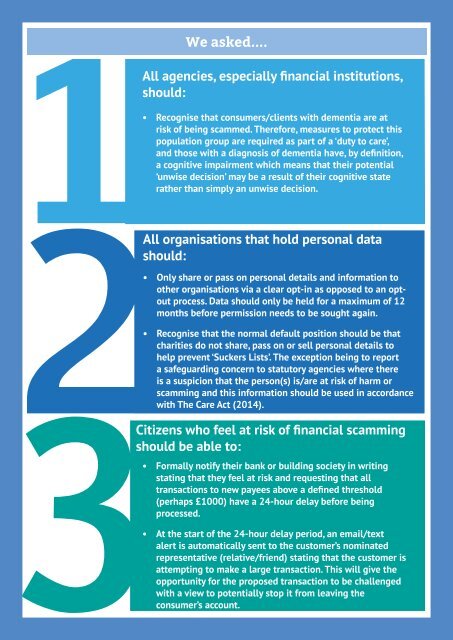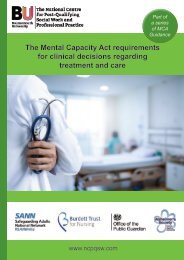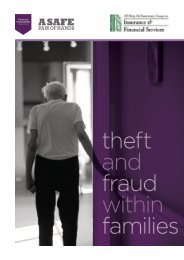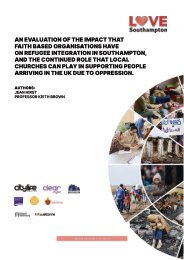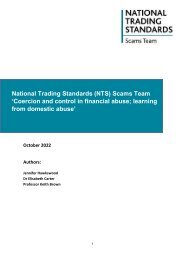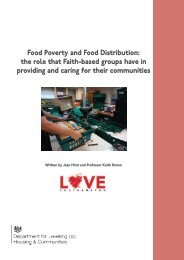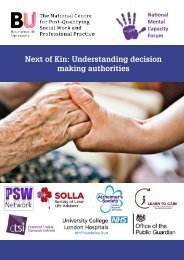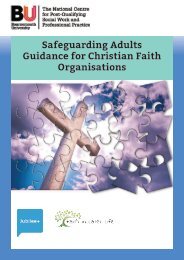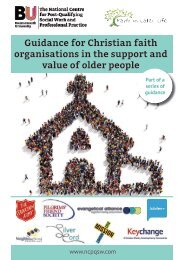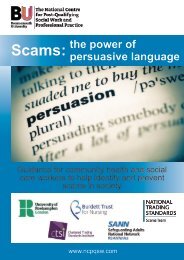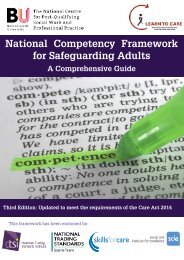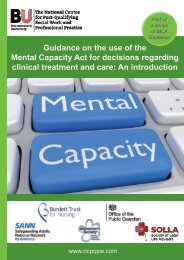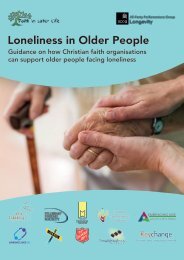Financial Scamming and Fraud
Financial scamming and its impact have been receiving a higher public profile in recent months, yet though it is recognised as a growing problem, there is a lack of clear research and evidence into the scale of the problem, its causes and the impact on the public.
Financial scamming and its impact have been receiving a higher
public profile in recent months, yet though it is recognised as a
growing problem, there is a lack of clear research and evidence
into the scale of the problem, its causes and the impact on the
public.
You also want an ePaper? Increase the reach of your titles
YUMPU automatically turns print PDFs into web optimized ePapers that Google loves.
We asked....<br />
All agencies, especially financial institutions,<br />
should:<br />
• Recognise that consumers/clients with dementia are at<br />
risk of being scammed. Therefore, measures to protect this<br />
population group are required as part of a ‘duty to care’,<br />
<strong>and</strong> those with a diagnosis of dementia have, by definition,<br />
a cognitive impairment which means that their potential<br />
‘unwise decision’ may be a result of their cognitive state<br />
rather than simply an unwise decision.<br />
All organisations that hold personal data<br />
should:<br />
• Only share or pass on personal details <strong>and</strong> information to<br />
other organisations via a clear opt-in as opposed to an optout<br />
process. Data should only be held for a maximum of 12<br />
months before permission needs to be sought again.<br />
• Recognise that the normal default position should be that<br />
charities do not share, pass on or sell personal details to<br />
help prevent ‘Suckers Lists’. The exception being to report<br />
a safeguarding concern to statutory agencies where there<br />
is a suspicion that the person(s) is/are at risk of harm or<br />
scamming <strong>and</strong> this information should be used in accordance<br />
with The Care Act (2014).<br />
Citizens who feel at risk of financial scamming<br />
should be able to:<br />
• Formally notify their bank or building society in writing<br />
stating that they feel at risk <strong>and</strong> requesting that all<br />
transactions to new payees above a defined threshold<br />
(perhaps £1000) have a 24-hour delay before being<br />
processed.<br />
• At the start of the 24-hour delay period, an email/text<br />
alert is automatically sent to the customer’s nominated<br />
representative (relative/friend) stating that the customer is<br />
attempting to make a large transaction. This will give the<br />
opportunity for the proposed transaction to be challenged<br />
with a view to potentially stop it from leaving the<br />
consumer’s account.


